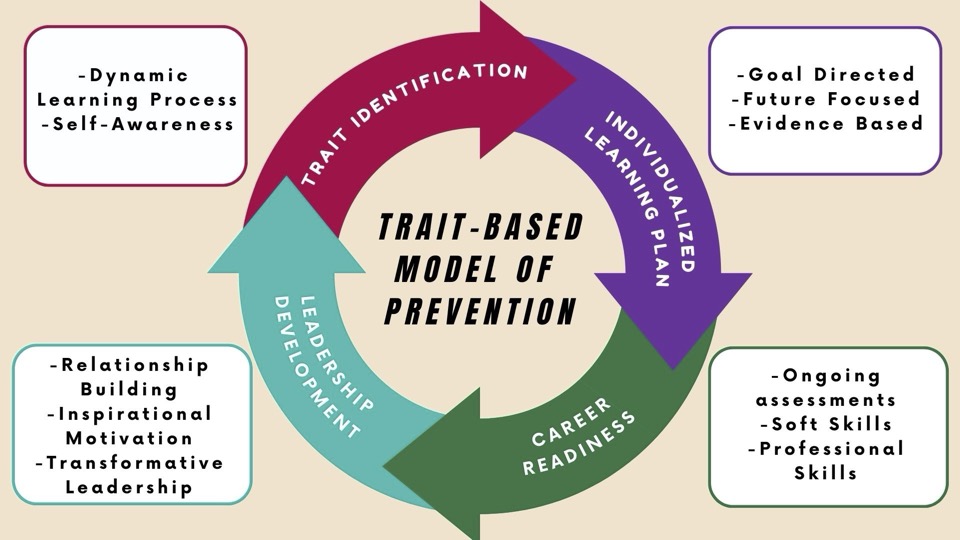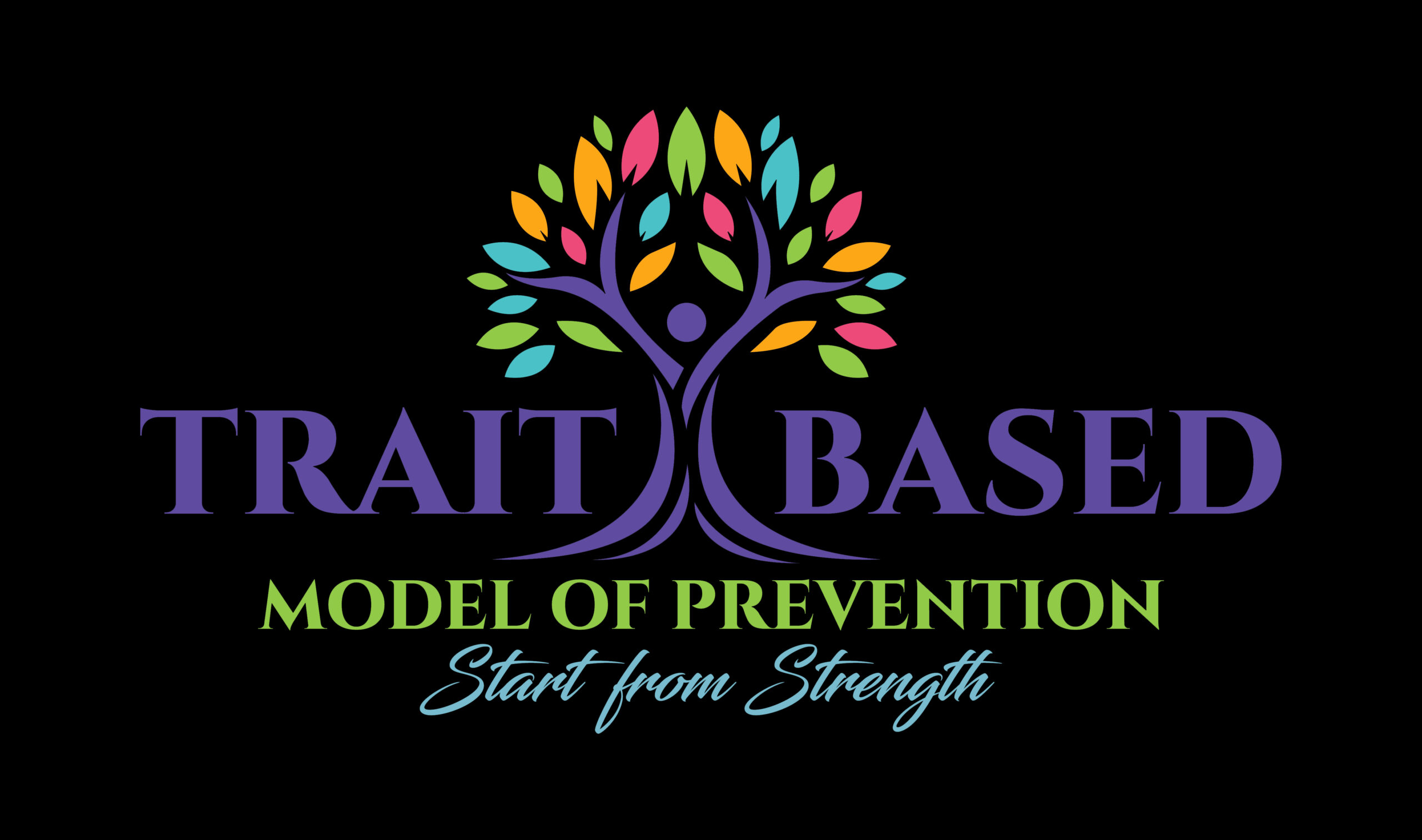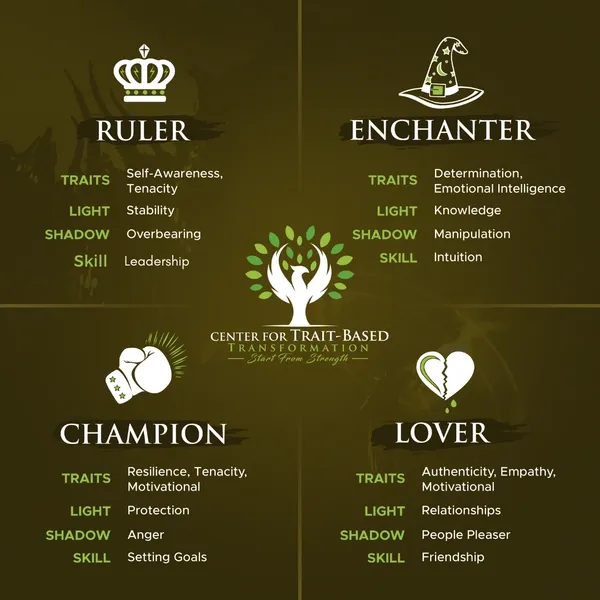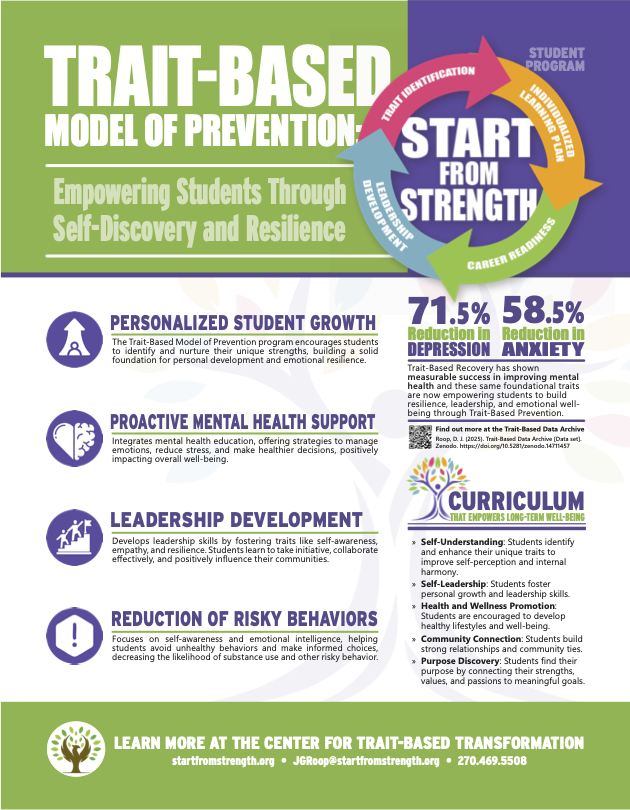
Trait-Based Model of Prevention
Trait-Based Model of Prevention Curriculum Design
The Trait-Based Model of Prevention curriculum is a transformative program designed to help students explore and develop their personality and character traits to achieve internal well-being and balance. The curriculum is structured into six modules, each focusing on different aspects of personal growth. The initial modules guide students in understanding and enhancing their traits to improve self-perception and internal harmony. As the curriculum progresses, it delves into self-leadership, promoting health and wellness, fostering community connections, and ultimately helping students find purpose in life. By fostering a strong sense of self and purpose, and by building resilience and healthy coping mechanisms, the curriculum effectively helps prevent drug experimentation and usage, empowering students to make positive choices and avoid substance abuse.


Trait-Based Model of Prevention Overview
The Trait-Based Model of Prevention is a comprehensive approach implemented in schools to promote drug prevention, build resilience, and enhance self-perception among students. Rooted in understanding individual personality traits, this model empowers students to make positive choices and navigate challenges effectively. By fostering self-awareness and understanding of their own traits, students develop a stronger sense of self and build confidence in their abilities. Through engaging activities and discussions, students not only learn to resist peer pressure and avoid substance abuse but also develop valuable life skills and coping strategies. The model aims to equip students with the tools they need to thrive academically, socially, and emotionally, setting them on a path toward a healthy and successful future.
Trait and Archetype Assessment
The Trait and Hero of Prevention Archetype Assessment is a comprehensive tool designed to help students identify and understand their unique personality traits and how these traits contribute to their roles as heroes in their own lives and communities. This assessment guides students through a process of self-discovery, enabling them to recognize their strengths and areas for growth in managing emotions, communicating with others, building resilience, and fostering healthy relationships. By aligning their traits with the archetypes of prevention heroes, students gain valuable insights into how they can leverage their innate qualities to make positive contributions to their environments and lead by example. This transformative assessment not only enhances self-awareness but also empowers students to embody the principles of prevention in their daily lives, promoting personal well-being and community harmony.

highlights
Personalized Student Growth
The Trait-Based Model of Prevention encourages students to identify and nurture their unique strengths and traits, helping them build a solid foundation for personal development and emotional resilience
Proactive Mental Health Support
The program integrates mental health education, offering strategies that teach students to manage emotions, reduce stress, and make healthier decisions, creating a positive impact on their overall well-being.
Leadership Development
By focusing on cultivating leadership traits such as self-awareness, empathy, and resilience, the model prepares students to take on leadership roles both in and out of school.
Reduction of Risky Behaviors
Through a focus on self-awareness and emotional intelligence, the model helps students avoid unhealthy behaviors and make informed choices, decreasing the likelihood of substance use and other risky behaviors.
Engaging and Interactive Curriculum
The model provides an experiential learning approach with activities, assessments, and group discussions that keep students actively involved, making the lessons engaging and applicable to real-life situations.
Long-Term Success and Well-Being
By fostering skills such as goal setting, mindfulness, and emotional resilience, the program helps students not just in the short term but sets them up for a lifetime of balanced health, positive relationships, and purposeful living.
Transforming Recovery and Prevention: The Trait-Based Model for Empowering Lives





